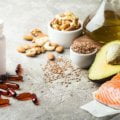Food journal: should you track your food intake?
Yes, tracking your food and macro intake can be a beneficial but often underutilized schooling tool for athletes. Making notes of your meal consumption is the first-rate way of understanding how you fuel your frame. Studies of staying power and collegiate athletes have proven that many athletes have inadequate know-how in their dietary desires and intakes. These findings shape my revel in asking the athletes I work with how much protein or carbohydrates they get daily; most do not know.
Nutritional knowledge and skills assist athletes in recognizing the significance of nutritional choices. There is an immediate hyperlink between better dietary education and better dietary exercise. The greater you recognize nutrition, the better choices you can make, and the more you can enhance your athletic performance and ordinary fitness.
What Do I Learn By Logging My Food?
Logging your food enables you to perceive trends and make adjustments to maintain a healthful average to assist your average well-being and schooling wishes. Proper fueling is specifically crucial to staying power athletes.
A precise part of distance athletes found in various studies were unaware of their specific dietary desires. Whether asked about pre-, all-through, or put-up-exercising, they no longer knew what their intake dreams had to be or what their consumption possibilities had been. Most athletes I work with tend to overestimate their protein and carbohydrate intake and underestimate their fat consumption.
Without logging your meals, it is hard to understand how much every meal institution you have become. So realize your dietary dreams and log your consumption to peer if you are assembling your desires. Proper vitamins are a smooth manner to enhance your performance.
How Often Should I Track My Food?
Food tracking must not be a regular thing. Since writing it down and including it in an online log can be tedious, do it as low as feasible. Here are multiple guidelines for purchasing started.
How to Start Tracking Your Food
Establish your dietary goals and start monitoring one day to get a short idea of your progress. After implementing better fueling strategies, repeat the process two weeks later, including decreasing delivered sugars, and see how you’re doing.
Long-Term Food Tracking
Log your meals for two weekdays and one weekend to assess your nutritional intake. Implement a few conscious eating strategies, such as ingesting a piece of fruit before having a candy dessert so that you will consume more fruit and much less dessert. Try controlling portion size by using smaller plates. Work some healthier food choices into your everyday routine. After approximately two to four weeks, repeat the system to see how you are doing and try to force extra wholesome conduct.
How Long Should I Track My Intake?
Tracking must only be completed sporadically to avoid specializing in excessive numbers. If we crunch numbers too strictly, we get distracted by the numbers and forget why we consume. We must gasoline our daily training and physical sports instead of just accomplishing a caloric-wide variety. Every four weeks is a superb c programming language. It gives you sufficient time to check something new, including experimenting with easy, healthy recipes, studying how to prep food, and adding extra activity.
Mindful Eating vs. Counting Calories
Tracking meals is crucial; however, not for counting calories! Instead, use it to help you broaden your mindful consumption. Use it to check your macros and micros (more on them below) and discover ways to regulate fueling. Keep the huge image in thoughts that maximum athletes benefit from eating healthier carbs, less saturated fats, and leaner protein. We need the dietary statistics, but without getting lost within the info. As triathletes, our main aim is to boost our nutritional consciousness and locate wholesome ingredients we enjoy, enhancing our swim-bike-run performance and our ordinary well-being. Macros Needed To Perform?












